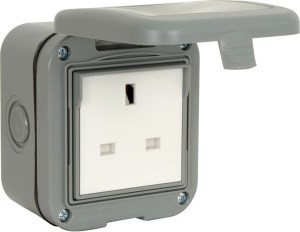On an eicr
I have a greenhouse connected to a sub DB in an outhouse, which is on a TT earth. Circuit is protected by upstream 30mA and 100mA RCD's.
I am debating in my mind if the frame of the greenhouse should be bonded to the single socket in the green house.
I would consider the frame as an extraneous part and therefore first reaction is to bond it.
But then thinking about it. bonding would reduce the risk of shock inside the greenhouse in the case of the socket became live but increase the risk of shock outside the greenhouse if the socket and greenhouse became live.
On balance I am tempted to go with not bonding, what are your thoughts?

